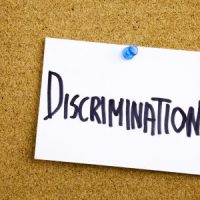Uber Gets Hit With Disparate Impact Discrimination Lawsuit

Most of the time, businesses have no intention of discriminating against employees, or against the general public. But what a lot of businesses don’t realize is that they often can implement policies and procedures that have the effect of discriminating—even if the policy itself says nothing about any particular race, class, or gender.
Government Comes After Uber
Such is the case with rideshare giant Uber, who is being sued for a policy that the Department of Justice (DOJ) says violates the Americans with Disabilities Act (ADA).
The lawsuit filed by the government stems from Uber’s policy of assessing wait time fees. Two minutes after a car arrives to pick someone up, an extra charge is assessed against the rider. This is, presumably, to keep cars going on time, and to ensure that a driver isn’t sitting there waiting for a late passenger.
On the surface, there wouldn’t seem to be anything discriminatory about this policy. However, look a little deeper and, according to the DOJ, the policy discriminates against people with disabilities, who often need extra time to get into vehicles.
Uber claims that the wait time fees were for stragglers, and people who are just late getting to cars—not to discriminate against anyone. Uber also says it is working with the DOJ to fix the problem—including waiving the late fees for disabled riders.
What is Disparate Impact?
Polices like the Uber policy are called disparate impact policies. Unlike other forms of discrimination, the discrimination in disparate impact is usually unintentional. Policies that appear on their face to be neutral, but which have the effect of discriminating, still violate the law.
For example, let’s say that as a requirement to work for your company, an employee has to be able to lift 100 pounds on their back and carry it 100 yards. That policy would likely have a disparate impact on women, and the elderly—although some could do that, it is likely that a lot fewer women and elderly could, than men or younger men could.
Certainly there are times when job requirements mandate that certain physical skills be met—for example, a nurse may have to be able to lift a 100-pound patient. But unless this condition exists, the test will be seen as being discriminatory.
Imagine you had a “technology test” in your office, where new employees would have to show that they know how to use certain software or hardware. That kind of test, while neutral on its face, could be seen as discriminating against older workers.
Have Policies Reviewed
Think of what the end effect of a policy or procedure could be. If it leaves a protected class out in the cold, you could have a legal problem. To avoid trouble, it’s best to get policies and procedures reviewed by an employment law attorney—things that may not strike you as being discriminatory, could end up that way.
Call the West Palm Beach employment law attorneys at Pike & Lustig today to make sure your policies and procedures aren’t getting you into trouble.
Resource:
usatoday.com/story/travel/news/2021/11/10/uber-wait-time-fee-lawsuit-doj-ada-passengers-disabilities/6377665001/
